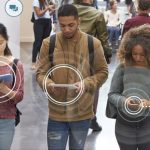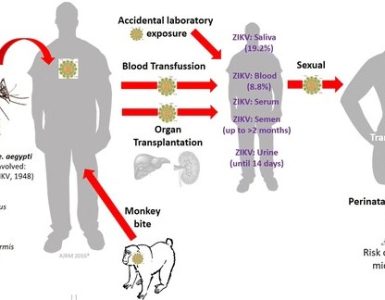 Misinformation about disease prevention and vaccines has run rampant during the COVID-19 pandemic, and it has significantly impacted young people who often get most of their information through online sources. As students return to college campuses and in-person classes, it is imperative that they have access to reliable information about vaccine-preventable diseases that may impact their school communities – like meningococcal disease, which disproportionately affects college students living in residence halls. To help equip young people with reliable information, DoSomething.org and the National Foundation for Infectious Diseases (NFID) have launched the “Complete What’s Missing” program, which aims to educate young people about meningococcal disease and the importance of prevention through vaccination.
Misinformation about disease prevention and vaccines has run rampant during the COVID-19 pandemic, and it has significantly impacted young people who often get most of their information through online sources. As students return to college campuses and in-person classes, it is imperative that they have access to reliable information about vaccine-preventable diseases that may impact their school communities – like meningococcal disease, which disproportionately affects college students living in residence halls. To help equip young people with reliable information, DoSomething.org and the National Foundation for Infectious Diseases (NFID) have launched the “Complete What’s Missing” program, which aims to educate young people about meningococcal disease and the importance of prevention through vaccination.
Meningococcal disease is a serious bacterial illness. Even with treatment, approximately 1 out of every 10 people who get meningococcal disease will die, and of those who survive, up to 20 percent will suffer serious and permanent complications including brain damage, kidney damage, hearing loss, and amputation of arms, legs, fingers, or toes.
Young people age 16-23 years have an increased risk of meningococcal disease, but they also have the power to take an active role in increasing vaccination rates. By educating their friends and family about the importance of vaccination against meningococcal disease and how to recognize medical misinformation online, young people can share the information necessary to own their healthcare choices.
“We launched the ‘Complete What’s Missing’ program just in time for high school and college students to return to campuses. COVID-19 isn’t the only disease that young people need to get vaccinated against to stay safe as they return to school this fall. And, with the spread of medical misinformation about vaccine-preventable diseases running rampant online, DoSomething can play a critical role in educating youth to identify false information and take ownership of their healthcare decisions,” said DeNora Getachew, CEO of DoSomething.org. “We are excited to work directly with NFID to provide factual information to promote healthier lives for young people so that they can thrive in their communities.”
Program participants can test their knowledge through the “Complete What’s Missing” quiz and will then receive a guide that explains how to spot medical misinformation, what young people should know about meningococcal disease and the two vaccines that can help protect against it (MenACWY and MenB).
“Educating young people on the importance of factual medical information is the key to helping them take action to lead healthy lives,” said NFID Medical Director William Schaffner, MD. “Because many young people are not fully vaccinated, this program aims to arm them with the tools they need to learn more about meningococcal disease and how to prevent it.”
Source: DoSomething.org

















